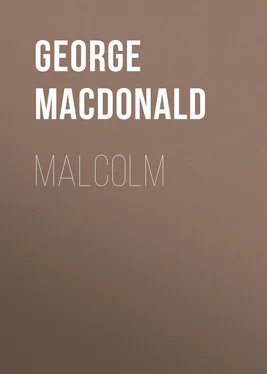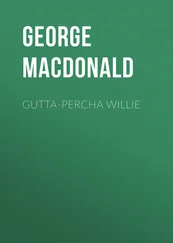George MacDonald - Malcolm
Здесь есть возможность читать онлайн «George MacDonald - Malcolm» — ознакомительный отрывок электронной книги совершенно бесплатно, а после прочтения отрывка купить полную версию. В некоторых случаях можно слушать аудио, скачать через торрент в формате fb2 и присутствует краткое содержание. Жанр: Зарубежные любовные романы, на английском языке. Описание произведения, (предисловие) а так же отзывы посетителей доступны на портале библиотеки ЛибКат.
- Название:Malcolm
- Автор:
- Жанр:
- Год:неизвестен
- ISBN:нет данных
- Рейтинг книги:5 / 5. Голосов: 1
-
Избранное:Добавить в избранное
- Отзывы:
-
Ваша оценка:
- 100
- 1
- 2
- 3
- 4
- 5
Malcolm: краткое содержание, описание и аннотация
Предлагаем к чтению аннотацию, описание, краткое содержание или предисловие (зависит от того, что написал сам автор книги «Malcolm»). Если вы не нашли необходимую информацию о книге — напишите в комментариях, мы постараемся отыскать её.
Malcolm — читать онлайн ознакомительный отрывок
Ниже представлен текст книги, разбитый по страницам. Система сохранения места последней прочитанной страницы, позволяет с удобством читать онлайн бесплатно книгу «Malcolm», без необходимости каждый раз заново искать на чём Вы остановились. Поставьте закладку, и сможете в любой момент перейти на страницу, на которой закончили чтение.
Интервал:
Закладка:
"Have you never been in the library?"
"I never set fut i' the hoose—'cep' i' the kitchie, an' ance or twise steppin' across the ha' frae the ae door to the tither. I wad fain see what kin' o' a place great fowk like you bides in, an' what kin' o' things, buiks an' a', ye hae aboot ye. It's no easy for the like o' huz 'at has but a but an' a ben (outer and inner room), to unnerstan' hoo ye fill sic a muckle place as yon. I wad be aye i' the libbrary, I think. But," he went on, glancing involuntarily at the dainty little foot that peered from under her dress, "yer leddyship's sae licht fittit, ye'll be ower the haill dwallin', like a wee bird in a muckle cage. Whan I want room, I like it wantin' wa's."
Once more he was on the point of going, but once more a word detained him.
"Do you ever read poetry?"
"Ay, sometimes—whan it 's auld."
"One would think you were talking about wine! Does age improve poetry as well?"
"I ken naething aboot wine, my leddy. Miss Horn gae me a glaiss the ither day, an' it tastit weel, but whether it was merum or mixtum, I couldna tell mair nor a haddick. Doobtless age does gar poetry smack a wee better; but I said auld only 'cause there's sae little new poetry that I care aboot comes my gait. Mr Graham's unco ta'en wi' Maister Wordsworth—no an ill name for a poet; do ye ken onything aboot him, my leddy?"
"I never heard of him."
"I wadna gie an auld Scots ballant for a barrowfu' o' his. There's gran' bits here an' there, nae doobt, but it 's ower mim mou'ed for me."
"What do you mean by that?"
"It's ower saft an' sliddery like i' yer mou', my leddy."
"What sort do you like then?"
"I like Milton weel. Ye get a fine mou'fu' o' him. I dinna like the verse 'at ye can murle (crumble) oot atween yer lips an' yer teeth. I like the verse 'at ye maun open yer mou' weel to lat gang. Syne it 's worth yer while, whether ye unnerstan' 't or no."
"I don't see how you can say that."
"Jist hear, my leddy! Here's a bit I cam upo' last nicht:
His volant touch, Instinct through all proportions, low and high, Fled and pursued transverse the resonant fugue.
Hear till 't! It's gran'—even though ye dinna ken what it means a bit."
"I do know what it means," said Florimel. "Let me see: volant means—what does volant mean?"
"It means fleein', I suppose."
"Well, he means some musician or other."
"Of coorse: it maun be Jubal—I ken a' the words but fugue; though I canna tell what business instinct an' proportions hae there."
"It's describing how the man's fingers, playing a fugue—on the organ, I suppose,—"
"A fugue 'll be some kin' o' a tune, than? That casts a heap o' licht on't, my leddy—I never saw an organ: what is 't like?"
"Something like a pianoforte."
"But I never saw ane o' them either. It's ill makin' things a'thegither oot o' yer ain heid."
"Well, it 's played with the fingers—like this," said Florimel. "And the fugue is a kind of piece where one part pursues the other,—"
"An' syne," cried Malcolm eagerly, "that ane turns roon' an' rins efter the first;—that 'll be 'fled and pursued transverse.' I hae't! I hae't! See, my leddy, what it is to hae sic schoolin', wi' music an' a'! The proportions—that's the relation o' the notes to ane anither; an' fugue—that comes frae fugere to flee —'fled and pursued transverse the resonant fugue '—the tane rinnin' efter the tither, roon' an' roon'. Ay, I hae't noo!– Resonant—that's echoing or resounding. But what's instinct my leddy? It maun be an adjective, thinkin'."
Although the modesty of Malcolm had led him to conclude the girl immeasurably his superior in learning because she could tell him what a fugue was, he soon found she could help him no further, for she understood scarcely anything about grammar, and her vocabulary was limited enough. Not a doubt interfered, however, with her acceptance of the imputed superiority; for it is as easy for some to assume as it is for others to yield.
"I hae't! It is an adjective," cried Malcolm, after a short pause of thought. "It's the touch that's instinct. But I fancy there sud be a comma efter instinct.—His fingers were sae used till 't that they could 'maist do the thing o' themsel's—Isna 't lucky, my leddy, that I thocht o' sayin' 't ower to you! I'll read the buik frae the beginnin',—it 's the neist to the last, I think,—jist to come upo' the twa lines i' their ain place, ohn their expeckin' me like, an' see hoo gran' they soon' whan a body unnerstan's them. Thank ye, my leddy."
"I suppose you read Milton to your grandfather?"
"Ay, sometimes—i' the lang forenights."
"What do you mean by the forenights?"
"I mean efter it 's dark an' afore ye gang to yer bed.—He likes the battles o' the angels best. As sune 's it comes to ony fechtin', up he gets, an' gangs stridin' aboot the flure; an' whiles he maks a claucht at 's claymore; an' faith! ance he maist cawed aff my heid wi' 't, for he had made a mistak aboot whaur I was sittin'."
"What's a claymore?"
"A muckle heelan' braidswoord, my leddy. Clay frae gladius verra likly; an' more 's the Gaelic for great: claymore, great sword. Blin' as my gran'father is, ye wad sweer he had fochten in 's day, gien ye hard hoo he'll gar't whurr an' whustle aboot 's heid as gien 't war a bit lath o' wud."
"But that's very dangerous," said Florimel, something aghast at the recital.
"Ow, ay!" assented Malcolm, indifferently,—"Gien ye wad luik in, my leddy, I wad lat ye see his claymore, an' his dirk, an' his skene dhu, an' a'."
"I don't think I could venture. He's too dreadful! I should be terrified at him."
"Dreidfu' my leddy? He's the quaietest, kin'liest auld man I that is, providit ye say naething for a Cawmill, or agen ony ither hielanman. Ye see he comes o' Glenco, an' the Cawmills are jist a hate till him—specially Cawmill o' Glenlyon, wha was the warst o' them a'. Ye sud hear him tell the story till 's pipes, my leddy! It's gran' to hear him! An' the poetry a' his ain!"
CHAPTER XVI: THE STORM
There came a blinding flash, and a roar through the leaden air, followed by heavy drops mixed with huge hailstones. At the flash, Florimel gave a cry and half rose to her feet, but at the thunder, fell as if stunned by the noise, on the sand. As if with a bound, Malcolm was by her side, but when she perceived his terror, she smiled, and laying hold of his hand, sprung to her feet.
"Come, come," she cried; and still holding his hand, hurried up the dune, and down the other side of it. Malcolm accompanied her step for step, strongly tempted, however, to snatch her up, and run for the bored craig: he could not think why she made for the road—high on an unscalable embankment, with the park wall on the other side. But she ran straight for a door in the embankment itself, dark between two buttresses, which, never having seen it open, he had not thought of. For a moment she stood panting before it, while with trembling hand she put a key in the lock; the next she pushed open the creaking door and entered. As she turned to take out the key, she saw Malcolm yards away in the middle of the road and in a cataract of rain, which seemed to have with difficulty suspended itself only until the lady should be under cover. He stood with his bonnet in his hand, watching for a farewell glance.
"Why don't you come in?" she said impatiently.
He was beside her in a moment.
"I didna ken ye wad lat me in," he said.
"I wouldn't have you drowned," she returned, shutting the door.
"Droont!" he repeated, "It wad tak a hantle (great deal) to droon me. I stack to the boddom o' a whumled boat a haill nicht whan I was but fifeteen."
They stood in a tunnel which passed under the road, affording immediate communication between the park and the shore. The further end of it was dark with trees. The upper half of the door by which they had entered was a wooden grating, for the admission of light, and through it they were now gazing, though they could see little but the straight lines of almost perpendicular rain that scratched out the colours of the landscape. The sea was troubled, although no wind blew; it heaved as with an inward unrest. But suddenly there was a great broken sound somewhere in the air; and the next moment a storm came tearing over the face of the sea, covering it with blackness innumerably rent into spots of white. Presently it struck the shore, and a great rude blast came roaring through the grating, carrying with it a sheet of rain, and, catching Florimel's hair, sent it streaming wildly out behind her.
Читать дальшеИнтервал:
Закладка:
Похожие книги на «Malcolm»
Представляем Вашему вниманию похожие книги на «Malcolm» списком для выбора. Мы отобрали схожую по названию и смыслу литературу в надежде предоставить читателям больше вариантов отыскать новые, интересные, ещё непрочитанные произведения.
Обсуждение, отзывы о книге «Malcolm» и просто собственные мнения читателей. Оставьте ваши комментарии, напишите, что Вы думаете о произведении, его смысле или главных героях. Укажите что конкретно понравилось, а что нет, и почему Вы так считаете.












